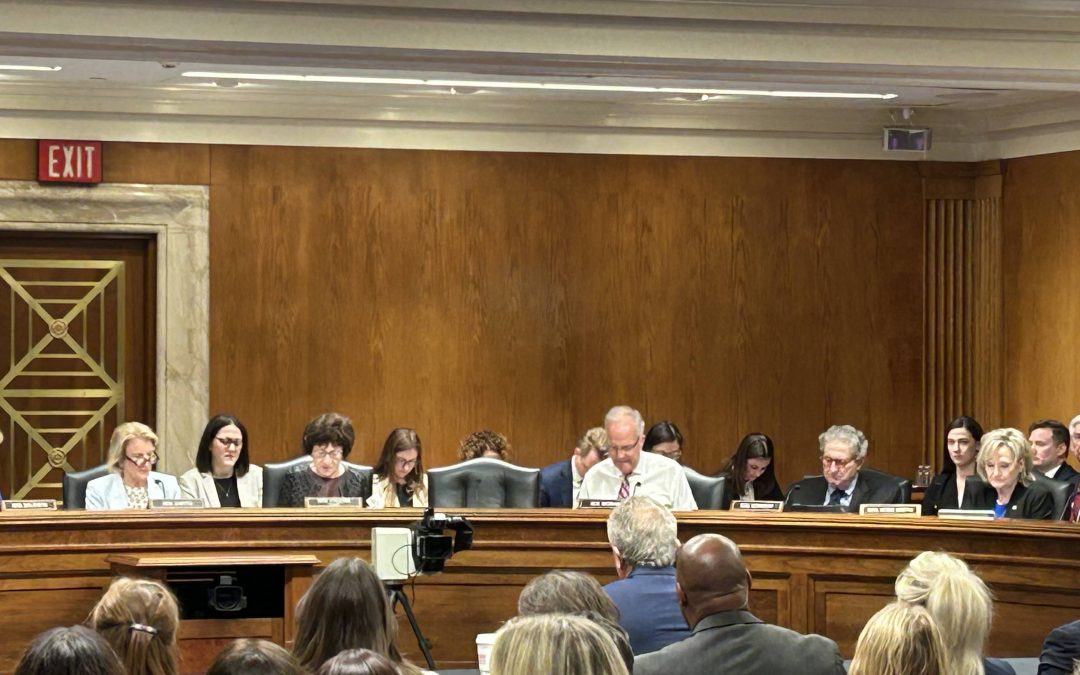WASHINGTON — Health and Human Services Secretary Robert F. Kennedy Jr. defended his proposed budget for next year on Tuesday amid challenges from members of both political parties at a budgetary subcommittee hearing.
The Senate Appropriations Subcommittee of Labor, Health and Human Services, Education and Related Agencies hearing was the third Kennedy attended in the last week.
The 2026 skinny budget, which was released by the White House earlier this month, would cut the Department of Health and Human Services more than 25% from current spending levels.
Kennedy’s three hearings showcased the clash between Democratic lawmakers and the Trump administration on how health and science funding should be distributed at the federal level.
In his opening remarks, Kennedy said the proposed budget would improve efficiency of the department while “cutting costs to taxpayers.”
“We intend to do a lot more with less,” Kennedy said. “The budget I’m presenting today supports these goals and reflects two enduring American values: compassion and responsibility.”
In addition to Tuesday’s appropriations hearing, Kennedy defended the budget proposal at two congressional committee hearings Thursday. The secretary was combative to certain challenges from committee members, repeatedly claiming that potential restructuring would reduce waste and streamline the department’s work.
Kennedy on Tuesday received more challenges, ranging from concern about rural health to investments in amyotrophic lateral sclerosis research.
Sen. Patty Murray, D-Wash., who also was in one of the committee hearings last week, was the most vocal committee member, continuously challenging the secretary’s responses.
“Secretary Kennedy, things are not going well,” Murray said. “It’s clear what you’re doing across HHS is devastating to children, families, seniors, millions of Americans that HHS programs support.”
Kennedy rebuked Murray’s opinions about the health infrastructure.
“You have presided over the destruction of health of the American people,” Kennedy said to her. “Our people are now the sickest in the world because you have not done your job.”
HHS already has reduced its staff to 62,000 from 82,000 in advance of the new budget, Kennedy said.
When asked by both Republican and Democratic senators about current cuts, Kennedy said White House attorneys have directed him to not comment because of a temporary restraining order stopping the Trump Administration from conducting mass layoffs and department restructuring.
Lawmakers instead focused on myriad programs potentially in jeopardy with the new fiscal budget. Sen. Dick Durbin, D-Ill., questioned the reduced funding for ALS, a nervous system disease that results in muscle control loss.
Durbin noted that Kennedy had posed “legitimate questions” as secretary, but criticized the current and future cuts in research.
“Cutting medical research is giving up on the future — you can’t do that,” Durbin said. “These families are counting on you, secretary, and counting on your department to do this research. It gives them hope to live another day.”
Sen. Susan Collins, R-Maine, who heads the Senate Committee on Appropriations but attended the subcommittee meeting as a guest, asked about the Low-Income Home Energy Assistance Program program, which helps lower-income households with energy costs and is eliminated in the proposed budget.
Kennedy defended the decision, noting that President Donald Trump’s planned energy policies would reduce costs for everyone.
Despite some challenges from Republican lawmakers, others defended Kennedy’s work for the department. Sen. John Kennedy, R-La., likened the staff cuts to layoffs at Meta and Microsoft, noting those companies still function well.
Sen. Markwayne Mullin, R-Okla., criticized universities for using grants to pay for indirect costs, such as lab maintenance, utilities and staffing, rather than using all the money for the research.
Kennedy responded by saying that under Trump, the department would redistribute money to protect Americans’ health.
“We spend two to three times [more] for our healthcare than what other nations spend, and we have the worst outcomes on Earth,” Kennedy said. “If somebody does not reorganize this mess, it is going to continue.”

